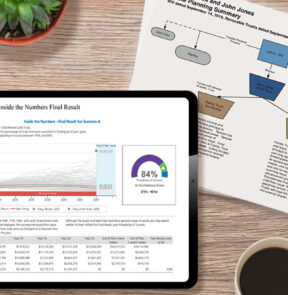In 2009, New Hampshire joined what was then a small group of states that statutorily permit the creation of a domestic asset protection trust (“DAPT”). Although today 20 states in the U.S. allow the use of DAPTs, not all DAPTs and jurisdictions are created equal. New Hampshire has become one of the most progressive states amongst the group to permit the DAPT and, as a result, an attractive jurisdiction to utilize.
What is a DAPT?
A DAPT is a specific type of irrevocable trust that holds assets transferred to it by the grantor and protects those assets from the grantor’s future creditors. While other types of structures may provide similar protections, the DAPT uniquely allows the grantor to remain a beneficiary of the trust. As a result, the grantor has access to, or beneficial enjoyment of, the trust assets. In addition, the grantor is permitted to maintain some level of involvement in the administration of the trust assets.
What are the requirements of the DAPT?
In order to establish a DAPT in New Hampshire, the trust must have at least one trustee who is either a resident of New Hampshire or a chartered bank or trust company that has a place of business in New Hampshire. In addition, the trust must adopt New Hampshire as its governing law, and the grantor’s interest must be subject to a spendthrift provision. Lastly, the grantor is required to remain solvent subsequent to the transfer of assets to the DAPT in order to avoid a fraudulent transfer.
What assets can the DAPT hold?
There is no limitation on what assets can be transferred to and held in the DAPT, making it an optimal holding vehicle for customized planning. The grantor can include liquid assets, such as securities, or even cash and non-liquid assets, such as closely held business interests and intellectual property. In addition, business entities such as limited liability companies, partnerships, and corporations may be used in conjunction with the DAPT to create multi-layered and compartmentalized risk mitigation.
What control can the grantor maintain?
When transferring assets to the DAPT, the grantor must relinquish most, but not necessarily all, control over the assets. Some powers may be retained, such as veto authority over distributions to other beneficiaries of the trust, removal and replacement of a trustee with another independent trustee, and a limited power of appointment to direct how the trust assets will be governed and who can benefit from them after the grantor’s death.
Who would be a good candidate for a DAPT?
A DAPT can be appealing to any individual who is concerned about the future risk of creditors, such as those engaged in high-risk industries like construction, medicine, dentistry, transportation, law, lending, or those involved with high-risk assets such as rental properties, chemicals, contaminants, and weaponry.
Can the DAPT be multi-purposed?
In addition to its creditor protection benefits, a DAPT can serve multiple purposes if properly drafted. For instance, a DAPT can be drafted to provide creditor protection to beneficiaries of the trust other than the grantor or be used as a multi-generational estate planning structure, or both. Further, in some jurisdictions, the DAPT can be used to minimize state and/or federal income and/or estate taxes. The availability of additional benefits, beyond creditor protection, will depend on the residence of the grantor, the trust instrument itself, and the assets contributed.
What are the limitations of the creditor protection?
While the DAPT can provide significant protections, the New Hampshire statute, like all others that recognize the DAPT, provides exceptions for which protections may be disregarded. First, New Hampshire requires a four-year waiting period after the transfer of assets to the trust before achieving full creditor protection for such assets. Second, in order to reach assets transferred by a grantor to a DAPT, a current creditor of the grantor must bring a claim within one year after the creditor knew or should have reasonably known that the grantor transferred the assets to the DAPT. Third, New Hampshire statutorily permits certain judgments to attach to the assets of the DAPT regardless of the date of transfer. These judgments are for (1) child support, (2) alimony, (3) creditors who provided services for the protection of a beneficiary’s interest in the trust, and (4) claims made by a state or the federal government.
How is a New Hampshire DAPT different from other states?
Over the years, New Hampshire has continuously proved its dedication to becoming a leader in the modern trust world. It has passed legislation that codifies some of the most nuanced tools a practitioner can use. For instance, it has statutorily allowed for the complete bifurcation of the various responsibilities of a traditional trustee into distinct fiduciary roles within a trust, which in turn allows a grantor to divide and assign trust administration authority and obligation to various professionals in different fields of expertise. New Hampshire law also authorizes the trust agreement to waive certain statutory notice requirements, limitations in the trust instrument regarding trustee duties with respect to certain assets, and the utilization of non-judicial settlement agreements to provide flexible administration and avoid unnecessary court involvement. And, in consideration of the scale of its expansion of progressive trust laws, New Hampshire has created a court solely dedicated to determining complex trust issues.
Just as all DAPT jurisdictions are not the same, neither are all grantors’ needs. While it is important to discuss individual goals and needs related to the establishment of the DAPT with an attorney who is well-versed in domestic asset protection laws, we at Fiduciary Trust Company can offer guidance to those considering the use of a New Hampshire DAPT and can help ensure compliance with state laws.



